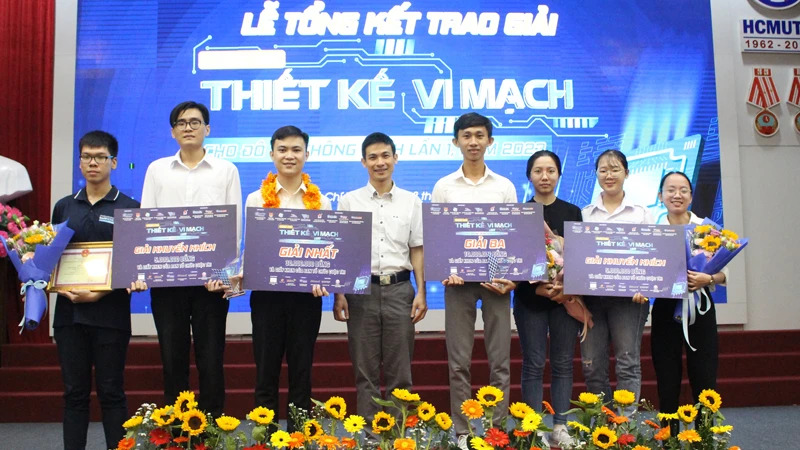The “1st Circuit Design for Smart Cities” contest has identified the top 5 projects to advance to the final round.
The contest is organised by the Board of Management of Saigon Hi-Tech Park, in collaboration with the HCYU of Ho Chi Minh City, the Department of Information and Communications, the Department of Science and Technology, and Viet Nam National University HCMC, and deployed and implemented by the Saigon Hi-Tech Park Incubation Centre (Saigon Hi-Tech Park) and the Youth Scientific and Technological Promotion Centre (HCYU of Ho Chi Minh City).
These projects are assessed to have creative, novel ideas and are presented rigorously, focusing on chip design for applications in smart urban areas with high applicability and commercialization. The projects have performed well in three criteria: innovation, efficiency, and capacity to incubate and develop.
The aforementioned projects have been evaluated as possessing creative and original views and have been presented with a high degree of thoroughness. The focus lies in the application of chip design within smart urban settings, showcasing significant practicality and potential for commercialization. These projects have displayed robust commission across three key criteria: innovation, efficiency, and the capacity to nurture and advance concepts.
The winning projects collectively received a prize of over 100 million VND and will be granted the opportunity to partake in the IC incubation programmes at Saigon Hi-Tech Park. This contest has been launched for the second time to foster IC design projects applied in the fields of green, smart, environmentally friendly, and energy-saving technology.
Participants from the VNUHCM-University of Science achieved notable success in the contest. Details:
– First prize♥ Author: Phạm Thế Hùng♥ Topic: A low-noise Analogue Front-end chip design reconfigures applications to receive signals from sensors on 180nm CMOS technology– Third prize♥ Author: Nguyễn Mai Minh Kha♥ Topic: A high-performance SAR ADC circuit design for the digital conversion of signals from sensors for IoT systems



Leave a Reply